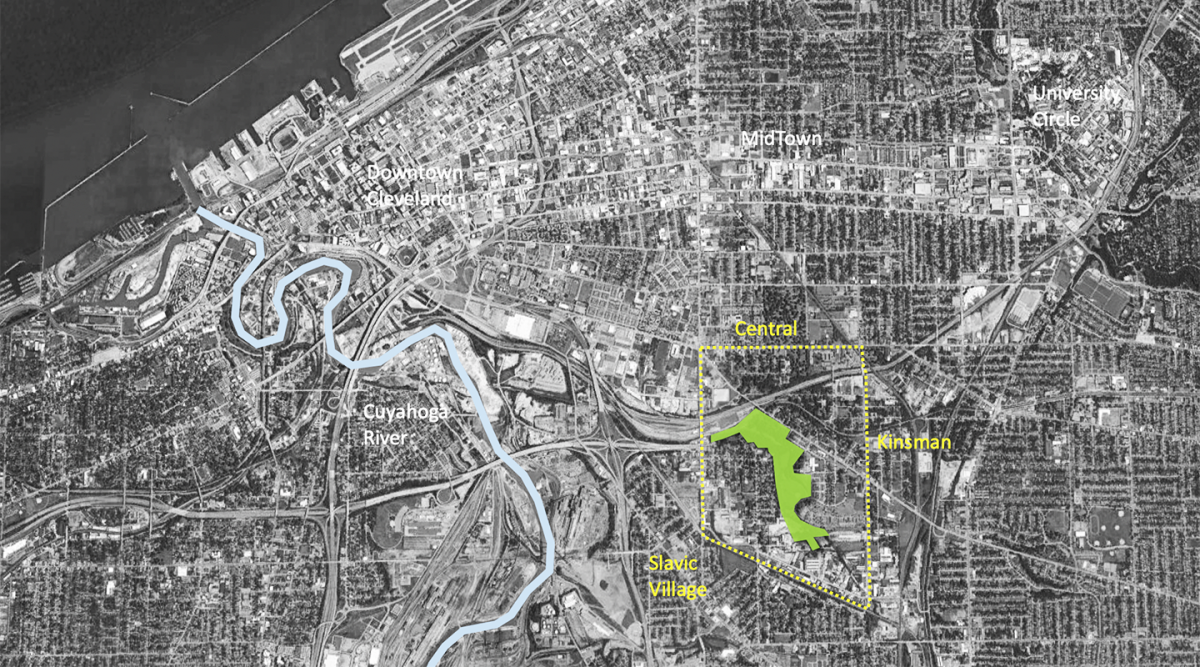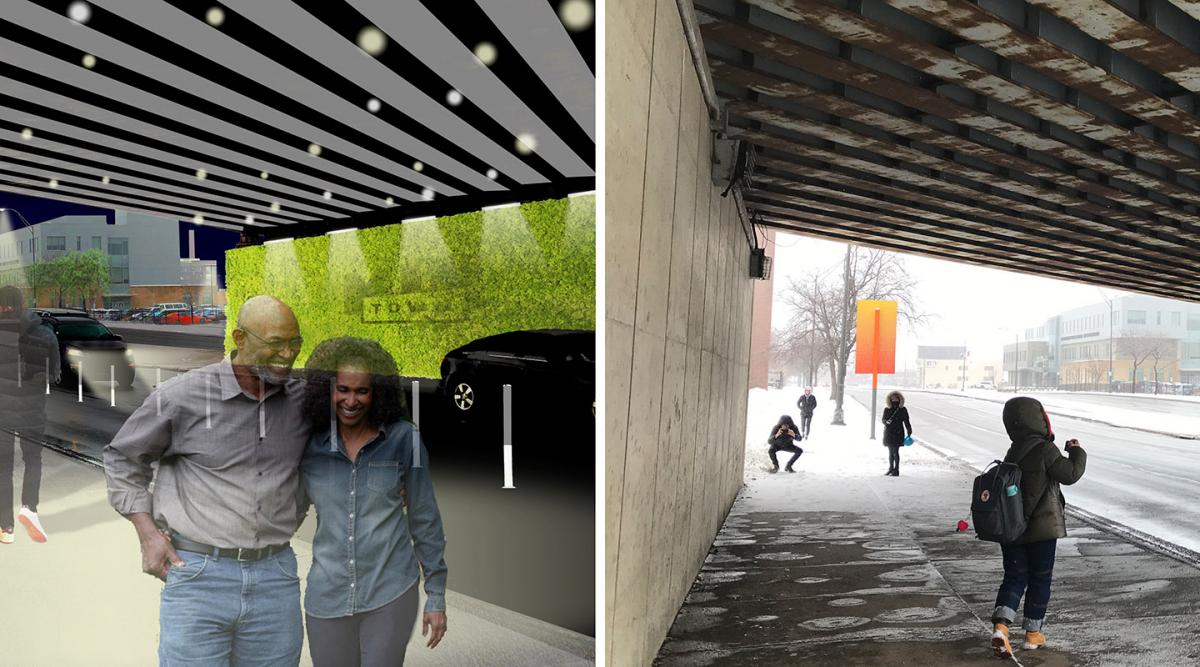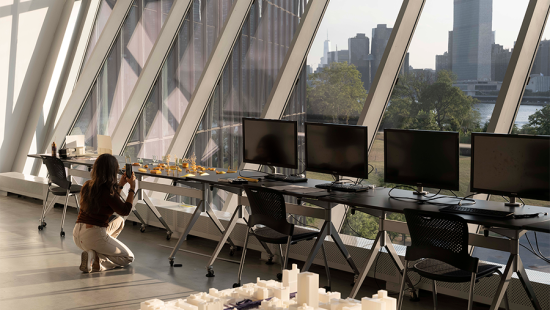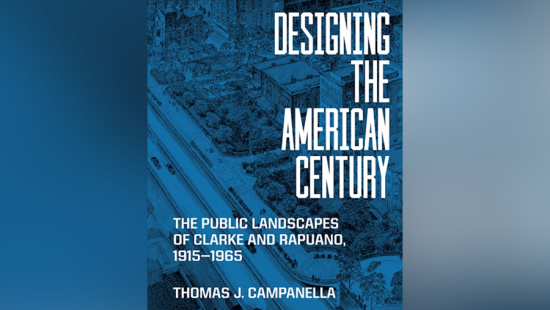Glass Continues Cleveland Transdisciplinary Studio and CRP Workshop with Engaged Faculty Fellowship

Since fall 2018, Visiting Lecturer Mitch Glass, CRP/LA, has worked with students from planning, architecture, landscape architecture, and real estate to envision transformational change in and around Cleveland. This fall, Glass was awarded a Cornell Engaged Faculty Fellowship which will help drive a community-based planning process for three neighborhoods in southeast Cleveland. Glass's proposal, titled Kingsbury Run Nature Reserve, Cleveland, Ohio: Partnership, Engagement, Programming + Design was selected for the fellowship in Engaged Cornell's specified areas of Access, Equity and Justice; Economic Vitality and Entrepreneurship; Energy, Environment and Sustainability.
Working with the local community development corporation Burton, Bell, Carr Development Inc., students will reach out to residents and stakeholders in the Central, Kinsman, and Slavic Village neighborhoods to envision design approaches for a 90-acre community nature reserve located at Kingsbury Run, situated between the three communities. The area is adjacent to the "Opportunity Corridor," a 400-million-dollar infrastructure investment by the State of Ohio and City of Cleveland.

"The Kingsbury Run Nature Reserve workshop and studio will bring together Cornell students from four disciplines to transform an area that would affect three different Cleveland neighborhoods," says Glass. "The proposed nature reserve sits within the heart of the three communities and presents an opportunity to add a substantial measure of social, economic, and environmental justice to these areas that are now rebounding from decades of disinvestment and ill-advised urban renewal schemes."
Glass's class that focuses on the project will be offered in the spring. Students across two courses — a CRP workshop in AAP, and a graduate landscape architecture studio in CALS — will undertake the work which will afford extensive opportunities to interact and learn together. According to Glass, "The resulting work will foreground community aspirations through urban design scenarios and a design for the nature reserve itself."
Partnership, engagement, interdisciplinary collaboration, and design are the building blocks of the ongoing, community planning–intensive project for which Glass was awarded the fellowship that offers a significant amount of support for the work.
"Speaking with and listening to long-time community residents and stakeholders are fundamental to this process, work that is supported by the Engaged Faculty Fellowship," Glass says. "The fellowship allows us to hire three to four high school seniors or young college-age students as local project ambassadors to be our close collaborators on the ground in Cleveland. It also provides space to explore and implement innovative outreach tools during the time of COVID-19."
According to City and Regional Planning department chair Jeffrey Chusid, CRP's long association with Cleveland may be seen as "a reaffirmation of the legacy of the late Norman Krumholz (M.R.P. '65), an alum and the long-time planning director of Cleveland, who helped to create the strand of 'progressive planning' we still believe in at Cornell." Chusid also acknowledges the support of Cornell alum and Cleveland advocate Joseph Keithley '71. The Keithley Professional Bridging Internship bears his name and has supported the research of a number of graduate students.

"This is our third consecutive workshop in Cleveland led by Mitch," added Chusid. "In combination with six years of internships with Cleveland agencies, as well as several fall field trips by M.R.P. students to the city, the Kingsbury Run Nature Reserve workshop signals an ongoing deepening of the department's interests, expertise, and commitment to northeast Ohio."







